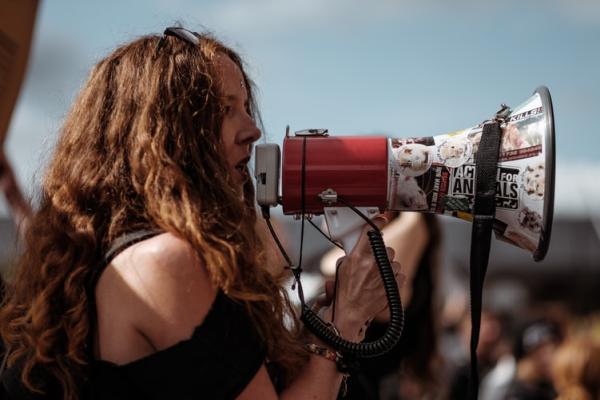Eco-Death Doesn't Always Refer to the Planet: New Global Witness Report
- August 1 2019
- 3 min read
Eco-Death Doesn't Always Refer to the Planet: New Global Witness Report

On Monday, international human rights group Global Witness revealed that the fight to protect land, homes, livelihoods, and wildlife from destructive, pollution causing industries turned deadly for over 160 environmental defenders in 2018.
Organizers campaigning against the destruction of the environment face governments, contract killers, and private security firms trying to stop them—sometimes even together! In total, 164 people were murdered last year while battling forces such as mining, logging, and agribusiness. They were trying to prevent them from taking over ancestral lands, communities, and natural habitats.
Campaign against single use plastic by switching to reusable bags and water bottles. Get your items from Custom Earth Promos today.
The number reported in Global Witness' new report, "Enemies of the State," averages out to the death of three eco-defenders per week! The group notes that because many of these deaths go unreported, the study represents a "sizable underestimate!"
"These are ordinary people trying to protect their homes and livelihoods, and standing up for the health of our planet. Often their land is violently grabbed to produce goods used and consumed across the world every day, from food, to mobile phones, to jewelry."
Global Witness
The Philippines was the deadliest country, with 30 people killed for trying to protect the land and environment. The island of Negros saw nine victims when gunmen shot sugarcane farmers occupying a plot of land covered by President Rodrigo Duterte's land reform program that had not been distributed to the farmers.
At the time, the National Federation of Sugar Workers said that the government has not created an effective land distribution program. Instead, it "red baits those who assert their rights to the land." This links the farmers to communist guerrillas.
A common tactic used by state forces and corporations to discredit organizers, defend aggressive actions against environmental campaigns, and deter others from joining the fight against damaging industries is criminalizing eco-defenders reports Global Witness.
"It is a brutal irony that while judicial systems routinely allow the killers of defenders to walk free, they are also being used to brand the activists themselves as terrorists, spies, or dangerous criminals. Both tactics send a clear message to other activists: the stakes for defending their rights are punishingly high for them, their families, and their communities."
Global Witness Senior Campaigner Alice Harrison
Filipino, Victoria Tauli-Corpuz, the United Nations Special Reporter on the rights of indigenous people told Global Witness about her recent, personal experience with being labeled a criminal by her country's government.
"In March 2018, The Philippines government declared me a terrorist. This was in retaliation for me speaking out against indigenous rights violations in my home country. For months, I lived under threat, and could not safely return home. Although I have since been removed from the list, government officials continue to hurl false accusations at me. This is a phenomenon seen around the world: land and environmental defenders are declared terrorists, locked up, or hit with paralyzing legal attacks for defending their rights or simply for living on lands that are coveted by others."
Victoria Tauli-Corpuz
Threats of deadly attack and criminalization were also made to Guatemalan campaigners.
In December, two brothers were found shot to death among work with their community to fight a hydropower project. This project was linked to one of the country's wealthiest and most powerful families and was funded by international banks. The fight was led by a movement known as The Peaceful Resistance of Ixquisis. They claimed that the planned dams are polluting water sources, destroying crops, and killing fish populations.
At least a third man was killed for resisting the project, while many others were injured and arrested.
"They say we are terrorists, delinquents, assassins, and that we have armed groups here, but really they're just killing us."
The Peaceful Resistance of Ixquisis member Joel Raymundo
2018 was the year Guatemala saw the largest spike in eco-defender murders. A total of 16 people, 5 more than the previous year, were killed for protesting the hydropower project, land grabs and forced evictions, mines, and plantations! The death toll makes this country the deadliest per capita for eco-defenders last year.
Resistance against mining projects was linked to the most deaths worldwide. Forty-three campaigners were killed last year!
In October, Mexican, Julian Carrillo, was found shot dead. He was the sixth member of his family to be killed among their community's fight against mining projects!
In February, Luis Fernando Ayala was reportedly tortured before being killed. He was only 16-years-old! he had been a fierce opponent to both mining and hydroelectric projects.
June saw the death of three more people when police shot live ammunition into a crowd of protesters in The Gambia. They were demonstrating against sand mining in local rice fields.
"Vicious attacks against land and environmental defenders are still happening, despite growing momentum behind environmental movements the world over. As we hurtle towards climate breakdown, it has never been more important to stand with those who are trying to defend their land and our planet against the reckless destruction being dispensed by the rich and powerful."
Global Witness Senior Campaigner Alice Harrison
Gain access to Orders, Tracking, Custom Options and Much More!